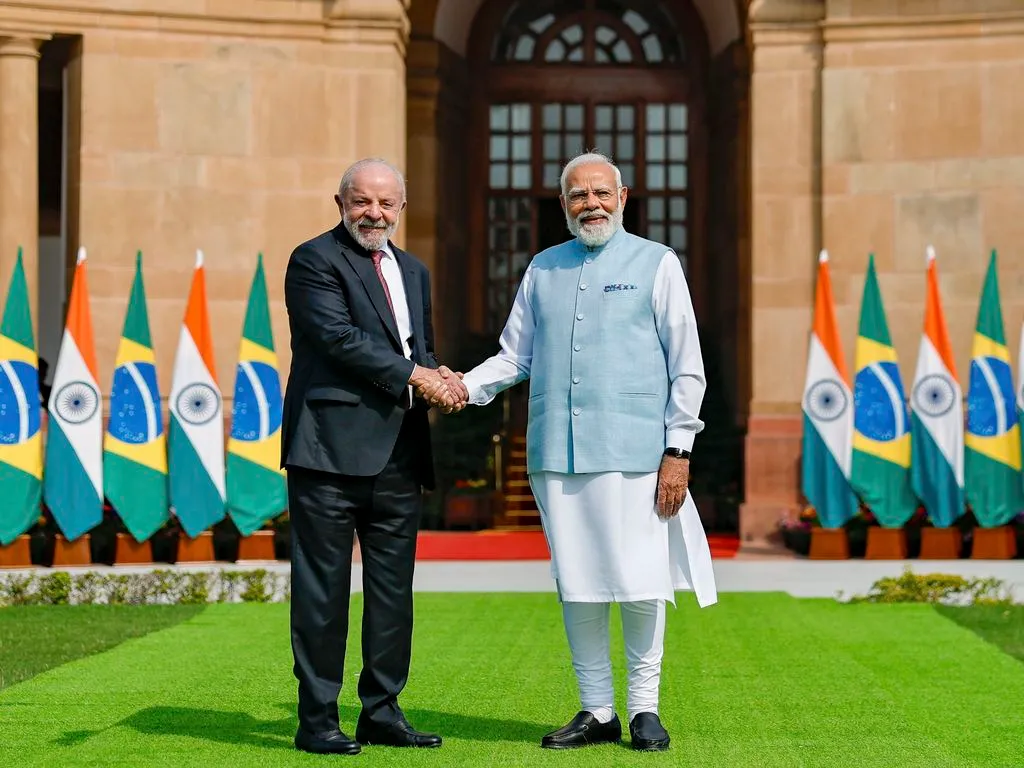Despite the enormous control of the narrative in Western media, which downplays the BRICS and other expressions of a new economic architecture, don’t assume everyone is fooled. In an end-of-year investment report on Dec. 27, 2022, widely read Credit Suisse analyst Zoltan Pozsar lays out an in-depth picture of the “new paradigm,” as he labels it, and warns that Western financial experts are underestimating just how massive of a shift is underway over the coming years. Pozsar has previously had a good pulse on things of this nature.
Pozsar writes: “The multipolar world order is being built, not by G7 heads of state but by the ‘G7 of the East’ (the BRICS heads of state).” In the course of his report, he discusses the BRICS-Plus (Brazil, Russia, India, China, South Africa), the Eurasian Economic Union (EAEU), the Shanghai Cooperation Organization (SCO), and other organizations of nations that are increasingly establishing a “Bretton Woods III.” He highlights especially “the special relationship between China and Russia,” and Chinese President Xi Jinping’s recent trip to Saudi Arabia where he also met with the Gulf Cooperation Council (GCC) and China-Arab States Summit.
On Xi’s trip to Saudi Arabia, Pozsar writes: “President Xi’s visit with Saudi and GCC leaders marks the birth of the petroyuan and a leap in China’s growing encumbrance of OPEC+’s oil and gas reserves: with the China-GCC Summit, China can claim to have built a ‘special relationship’ not only with the ‘+’ sign in OPEC+ (Russia), but with Iran and all of OPEC+.... President Xi’s visit was the very first China-Arab States Summit in history, and echoes FDR’s meeting with King Abdul Aziz Ibn Saud on Valentine’s Day 1945.”
“My sense is that the market is starting to realize that the world is going from unipolar to multipolar politically, but the market has yet to make the leap,” Pozsar writes. He continues by elaborating the various aspects of the “Bretton Woods III,” including trade with national currencies which avoid the dollar, and the use of credit for development in exchange for oil or resources—all setting the stage for a new platform of trade and finance that is wholly outside of the global dollar system. What’s more, China has not just done this with the BRICS and now Saudi Arabia, but the entirety of OPEC+. “The U.S. has sanctioned half of OPEC with 40% of the world’s oil reserves and lost them to China, while China is courting the other half of OPEC with an offer that’s hard to refuse.” China, “while in lockdown, forged a bond with all of OPEC+,” he adds.
Importantly, Pozsar acknowledges the roles played by economists Sergey Glazyev in Russia, and Vice Premier Liu He in China in crafting this “alternative economic system.” (https://plus2.credit-suisse.com/shorturlpdf.html?v=5h1o-8SW-V&t=-6f9o9gxfcir9ldit6fbbldzzx )
After warning again that Western analysts are blind to what this means for the future of markets and investments (he is after all an investment analyst), Pozsar makes a quick side comment which underscores what the Western oligarchy is thinking in regards to this new system: The only way these developments won’t have major effects on Western finance, he writes, “will be due to a big, global fight.”
While Pozsar doesn’t say it outright, this is, in fact, what is being acted upon. This is Global NATO’s attempt to wage an all-out war against Russia, and increasingly China, in an effort to prevent their dying trans-Atlantic system from being replaced by this “new paradigm.”



